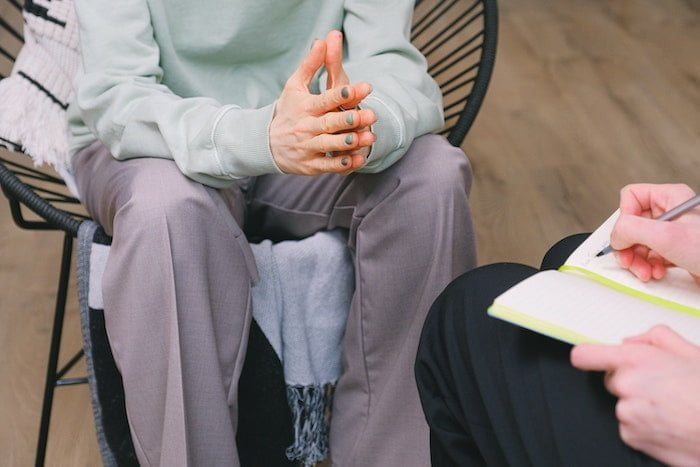Quick links for Aftercare
- What are the goals of an aftercare programme?
- What does an aftercare programme involve?
- What are rehab alumni programmes in aftercare?
- What other activities should I focus on during aftercare?
- What happens if I relapse during aftercare?
- References for aftercare
So you recognised that you were struggling with a substance or behavioural addiction, entered a rehabilitation centre for treatment and have now completed the recovery programme. Congratulations!
Completing an addiction treatment programme is extremely commendable and you should feel very proud of your accomplishment
However, it’s important to recognise that you are still in recovery during this time and that the act of leaving rehab has served to increase the risk of relapse.
Thankfully, an aftercare programme is designed to provide the additional support that is needed during this time.
They can help you to keep your goals and motivation a priority even after the treatment has ended, and includes activities and resources that can be utilised to help you manage stress and deal with potential triggers.
What are the goals of an aftercare programme?

People talking as part of an aftercare support group
While a treatment programme is designed to help you physically and psychologically recover from a substance or behavioural addiction, an aftercare programme can help you to maintain your recovery as you reintegrate back into life outside of rehab. [1]
The main goals of an aftercare programme include:
- Maintaining recovery from a substance or behavioural addiction
- Reducing cravings and preventing relapse
- Creating a fulfilling and enjoyable life
It is important to note that if you have been diagnosed with a co-occurring mental health disorder then you must speak to your doctor once you leave rehab to ensure that you will continue to receive the care that you require.
Some aftercare programmes will also prescribe medication on a short-term basis that can help to reduce cravings during the first few weeks of recovery.
What does an aftercare programme involve?

Patients iu an aftercare support group holding hands
Each aftercare programme will be tailored towards the individual and will therefore differ significantly from each other in many ways.
However, there are a number of key elements that are included in the majority of aftercare programmes as they have been proven to be highly effective at helping to maintain recovery and prevent relapse.
Many aftercare programmes include the following:
Local support groups for aftercare
Attending local support groups can allow you to form connections with people who may have similar experiences with addiction.
Such groups include:
- Alcoholics Anonymous
- Narcotics Anonymous
- Gamblers Anonymous
- SMART Recovery
It is also a safe, non-judgmental environment where you can share your emotions and struggles with people who understand exactly what you are going through. [2]
These support groups can be accessed locally or online, are completely free to join and can be as anonymous as you wish.
Ongoing counselling for aftercare
In many cases, ongoing counselling can be beneficial to the patient even after they have completed rehab
Many issues relating to addiction are deep-rooted and often subconsciously buried, and as a result, they are unable to be thoroughly explored during the 10-28 days of a rehab treatment programme
Seeking additional therapy as part of an aftercare plan can allow the patient and therapist to examine any potential trauma or past experiences that may have led to the addiction, and discuss how to cope with potential triggers in a healthy way.

Paintbrushes set up for art therapy as part of an aftercare programme
Holistic therapy treatments for aftercare
Certain therapy methods such as mindfulness, reflexology, music therapy and acupuncture are less traditional than the treatments you may have been offered at a local rehabilitation centre, but offer a wide range of benefits that can help you through the aftercare process.
These are known as complementary therapies, meaning that they should be used in conjunction with other types of treatment such as cognitive behavioural therapy and group therapy.
They are generally not effective as a stand-alone treatment but are encouraged during recovery as they have many proven benefits.
What are rehab alumni programmes in aftercare?

Patient discussing an alumni programme with a rehab staff member as part of her aftercare package
While an aftercare programme is a short-term solution to the challenges of life after rehab, an alumni programme provides long-term and ongoing support to people recovering from a substance or behavioural addiction.
Many rehabilitation centres will have their own alumni programmes, where previous residents can receive support and join a community of like-minded people.
These programmes can help you to meet other people in recovery, share your struggles and experiences and participate in enjoyable and sober activities together.
An alumni programme can help previous residents build a strong support network, reducing feelings of loneliness and isolation which are two key factors in preventing relapse.
In most cases the alumni programme will contact you once you have left the rehabilitation centre – however, the staff will be happy to discuss the process and benefits with you if you choose to reach out beforehand.
What other activities should I focus on during aftercare?

Two recoverees socialising during aftercare
Along with the options provided by aftercare programmes, there are a number of healthy and fulfilling activities that you can focus on in your free time in order to continue working towards your recovery goals.
The majority of these activities can be tailored to work with your lifestyle and budget, allowing you to continue them on an ongoing basis and reap the benefits for years to come.
Get regular exercise
Maintaining a regular exercise routine is a great way to relieve stress and feel more confident about yourself and your abilities.
Even something as small as a daily walk can help you to sort through your thoughts and take in some fresh air, and joining exercise groups or classes can help you to form friendships with others.
Eat a healthy diet
Many people neglect their health and diet while they are struggling with an addiction, and may end up with nutritional deficiencies and poor general health. [3]
Focusing on eating a healthy diet and nourishing your body can increase feelings of self-confidence and self-worth, which are essential in preventing future relapses.

Woman reading a book during her aftercare
Focus on education
Reading, writing and learning are healthy and fulfilling ways to escape from the stresses of daily life while creating a promising future for yourself.
Before treatment, your life may have revolved around obtaining and using substances or compulsively acting out self-destructive behaviours.
Now you probably have a lot of free time, and it can be extremely fulfilling to use it wisely by focusing on educating yourself and learning about topics that you are interested in.
Volunteer for a cause
Focusing on something outside of your own life and struggles can create a sense of purpose and belonging, particularly if you are affecting positive change in some way.
Using your time to volunteer with an organisation that you believe in can increase your self-confidence and allow you to form relationships with others, and the knowledge that you are making a difference can bring purpose to your life.
What happens if I relapse during aftercare?

Recoveree making a relapse prevention plan for their aftercare package
Even the most dedicated and motivated person has a chance of relapsing at some point after treatment, with some studies claiming that up to 60% of patients will relapse at least once after leaving a rehabilitation centre. [4]
It’s natural to experience feelings of shame and guilt, but the important thing to remember is that relapse does not signify the end of your recovery journey – instead, it is simply a bump on the road.
Rather than slipping back into self-destructive behaviours, remind yourself of your goals and motivations for recovery and keep pushing forward.
It can be helpful to examine the reasons behind your relapse, with the most common causes listed below:
You may have stopped prioritising recovery in your aftercare
Sometimes, life gets in the way of the things that we really want to do. If you have become overwhelmed with work, family and social commitments, you may have slowly started to move away from attending support groups and keeping up with therapy appointments.
You may need to develop coping strategies to deal with potential triggers during aftercare
It is important to learn how to identify potential triggers [5] and take steps to deal with them in a healthy manner.
You may require additional support regarding the development of coping strategies and removing yourself from relationships and situations that can cause you to relapse.

Patient and therapist discussing aftercare plans at rehab
You may need to work on building a strong aftercare support system
Feelings of loneliness and isolation are a recipe for relapse, and it can be helpful to prioritise building a healthy support system and letting go of relationships that no longer serve you.
Connecting with others at local support groups can help you to find like-minded people with similar recovery goals, allowing you to support and motivate each other throughout the process.
You may have forgotten why you want to recover
Our brains are biologically designed to seek pleasure and avoid pain.
It can be easier to navigate through painful periods of recovery when you have a clear goal and tangible motivations in mind, and relapse may signify that you have lost sight of these goals.
Regardless of the reasons behind the relapse, you need to have a plan for the next steps of your recovery journey.
If you have been struggling to stay sober for a while, you may want to consider re-entering a dedicated treatment programme in order to receive the support that you require.
However, if this relapse was a one-off, simply revisiting your goals and motivations for recovery may be enough to get you back on track.






